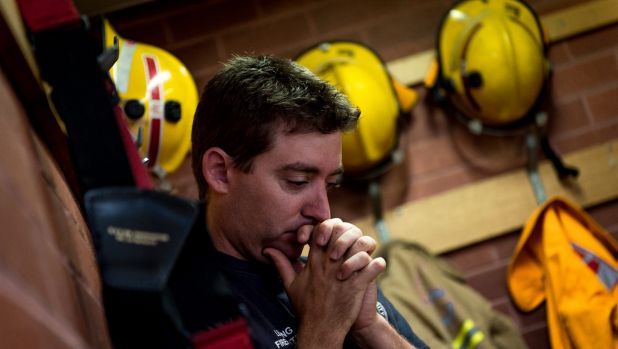Breaking down the impact repetitive exposure to trauma has on Emergency Service Workers and their families.
Post-traumatic stress disorder (PTSD) describes the severe and persistent stress response after exposure to a traumatic event. At least 8,000 police, fire and ambulance officers are believed to be living with PTSD in Australia. For this population, exposure to repeated trauma has occurred over a 20-40 year span, and with stoicism the expected norm, individuals often can’t effectively manage the after effects of each event. Frequently I have heard comments such as, “I don’t want to burden my family with what happened today”. Quick fixes such as alcohol or distraction with the next event are often used until the brain and body becomes overwhelmed.
Due to the brains accumulation of unresolved danger and stress, Emergency Services Workers can learn to exist in that highly aroused ‘fight or flight moment’, so they are often very jumpy or reactive, can be quick to anger, have interrupted sleep, and are constantly on high alert, e.g. scanning the room or sitting with their back against the wall whilst at dinner. Further we will often see disengagement socially, from family and friends, as they perceive the day-to-day issues lacking in importance when compared with issues such as loss of life. Re-experiencing images of a number of significant traumas are common, and if not addressed, can quickly spiral into PTSD. Other challenges impeding on their healthy management of the trauma are interrupted sleep cycles and meal routines due to shift work.
It is essential if you or someone you love is suffering from these symptoms, to recognise it early, so you can take a path to effective help. Understanding what is happening will also help ongoing relationships with those involved. Bearing in mind that Emergency Service Workers are trained to stay focused on the task and put their own needs aside. This creates a significant barrier in seeking help as they may view it as “weak” or dismiss it as not important.
As a loved one, it is normal for you to feel unsure about where they are at with their trauma reactions, and to feel like they have become a different person. You may often feel disconnected from them, and make allowances for their behaviours. It is common to wonder things like “Will he ever get better?”. It is important to remember that the person may be feeling alone, hopeless and helpless and that no one understands what he or she may be going through.
If you yourself are an Emergency Service Worker who is facing these challenges, or it is one of your loved ones, we have some tips to guide you in reducing the impact of repetitive trauma on your lives:
DO
- Talk about what happened, ideally seeking professional guidance with someone experienced in treating trauma as it may not be appropriate to discuss specific events with family.
- Allow time once help has commenced – the onset took time, so does the recovery.
- Promote healthy and relaxing activities such as walking.
- Try to keep a daily routine, especially with sleep.
- Use support, both the worker and the family will require support during the process.
DON’T
- Rely on alcohol or drugs to help with ‘low’ moments or flashbacks.
- Take on unnecessary stressful family or work situations, or create time pressures.
- Sleep all day or withdraw from social events. Encourage your loved one to join in activities.
- Do nothing; symptoms are likely to get worse if left to their own devices.
Creating Change Psychology has a team of Clinical Psychologists here to help, and can offer information and support to help you and your family manage the symptoms of repetitive trauma. We will tailor our approach to suit the individual worker as no two experiences or coping styles are the same. Please contact us on 02 8883 3185.
Written by Greg Pankhurst, Senior Clinical Psychologist at Creating Change – www.creatingchange.net.au

